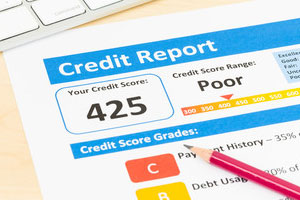Shared Equity
Leodis Financial helps you search the market to find the shared equity loan that suits your needs.
Shared Equity gives prospective homeowners with little deposits an opportunity to purchase homes with some assistance.
SHARED EQUITY
Shared Equity gives prospective homeowners with little deposits an opportunity to purchase homes with some assistance. In the Government sector, shared equity is referred to as a Help to Buy scheme. Although the basic premises of shared equity in the government and private sector are the same, there are a few differences.
In the government sector, the government grants you a loan to purchase a property. The loan is interest-free for the first 5 years but then you have to pay interest on it until you pay it all back in 25 years. But during that time, you own your home. While in the private sector, the lender may decide not to transfer the ownership of the house to you or they may ask for a bigger share if you sell the property before the loan is all paid up.
One advantage of taking out a shared equity loan from private lenders is that you might be able to get more flexible terms. Leodis Financial helps you search the market to find the shared equity loan that suits your needs. We help you fill out an application that is sent to the lenders. Regardless of the amount sought, we try to get a decision on your application in days rather than weeks and months.
What is Shared Equity or Partnership Mortgages?
With a shared equity mortgage or partnership mortgage a lender will agree to give you a loan alongside your main mortgage in return for a share of any profits when you sell your house or repay the loan.
Find out how shared equity mortgages work, the different types and who they are suitable for.
Shared equity basics
Shared equity schemes have been a feature of the mortgage market for several years and have primarily been offered by:
- House builders.
- Local authorities
- Government initiative to help first time buyers onto the property ladder.

Typically, they allow you to combine a small deposit with a lower than average mortgage size by providing you with an ‘equity loan’, covering a percentage of the property’s value.
You might start to repay the equity loan gradually after a set number of years – or in full, including when you come to sell the property.
The value of your equity loan generally fluctuates with the value of your property, so the amount you’ll pay depends on the value of the property at the time you repay.
The rest of this article looks at a newly launched type of shared equity mortgage called the Partnership Mortgage.
At present this is the only product of its kind in the market and it is only available if you have a large deposit.
The Partnership Mortgage
As with the schemes described above, the ‘Partnership Mortgage’, launched in October 2012, combines a traditional mortgage with an interest-free loan.
However, there are some key differences:
- It requires a significant deposit. • It’s available for remortgages as well as for first time buyers and home movers. • When you sell your home or repay the loan, you repay not only the interest free loan but also a share of the increase in overall value of your home since you took out the mortgage.
Note the term ‘partnership’ as used for this product does not have any business relationship connotations.
Key features:
- Requires a 20% deposit (meaning you need at least 80% equity in your home if remortgaging) • Two lenders are involved: you take out a 60% mortgage on a repayment basis as your main mortgage and a 20% interest-free loan – the Partnership Mortgage • You repay the 20% Partnership Mortgage in full at the end of an agreed term or if you decide to sell or remortgage the property • At the time of repaying the Partnership Mortgage you must also pay the lender 40% of any increase in value of your whole property since you took out the mortgage
Advantages of a shared equity mortgage:
Advantages:
- Offers a way to release capital at a low cost by re-mortgaging.
- Your monthly payments will be lower than if you borrowed the same amount with a single traditional mortgage – due to the interest-free loan element coupled with a smaller main mortgage.
- If you sell after 12 months, and the value of your home has fallen the lender will share any loss you make – meaning you pay back less than you borrowed.
One last thing – When comparing these deals, don’t forget to speak with our specialist the fees for taking them out, as well as the exit penalties.

HELP KEEP MORE POUNDS IN YOUR POCKET – TALK TO US ABOUT YOUR REQUIREMENTS TODAY.
What we do
Our Services
















Have a question?
Get in touch
Help & Guidance
- Mortgage Calculators
- Vehicle Refinance
- Vehicle Finance
- Vehicle Leasing
- Commercial Mortgage
- Bridging Loan
- Buy To Let
- Development Finance
- Second Charge
- First Time Buyer
- Poor Credit Mortage
- Building Insurance
- Mortgage Protection
- Life Assurance
- Business Protection
- Asset Finance
- Capital Release
- Invoice Financing
- FAQs
- Forms
Our Products & Services
- Commercial Finance
- Residential Mortgage
- Homeowner
- Specialist Finance
- Insurance
- Business Finance
- Asset Finance
- Tax Relief
- Invoice Financing
- Vehicle Finance
- Mortgage Calculators
- Vehicle HP Calculator
- Vehicle PCP Calculator
- Mortgage Forms
- Bridging Loan Form
- Buy To Let Forms
- Second Charge Forms
- Commercial Forms
Disclaimer:
Every effort has been made to ensure the accuracy at the time it was written. It is not intended to provide legal advice or suggest a guaranteed outcome as individual situations will differ and the law may have changed since publication.
Readers considering legal action should consult with an experienced lawyer to understand current laws and how they may affect a case.
These Terms apply to your use of our website. If you are not over 18 or not living in the United Kingdom you will not be able to use this website and you should not attempt to make an application, although subject to your acceptance of these Terms you should feel free to browse.
If you do not agree to be bound by the Terms set out below you should not use this website.
If you do not agree to be bound by the Terms set out below you should not use this website.
About Us
We are an established broker working in partnership with selected lenders to bring our clients the financial solution that best suits their needs. From all types of residential or commercial mortgage through to bridging and development finance and onto vehicle, asset and business finance.
Important
YOUR HOME MAY BE REPOSSESSED IF YOU DO NOT KEEP UP REPAYMENTS ON YOUR MORTGAGE
Leodis Financial is a trading style of Leodis Financial Ltd. Directly authorized and regulated by the Financial Conduct Authority. FRN750327. Office: RHS Rebecca House, Bradford. BD1 2RX Registered Company No: 09865671 | Registered in England and Wales.
2022 – © Leodis Financial – All Rights Reserved
